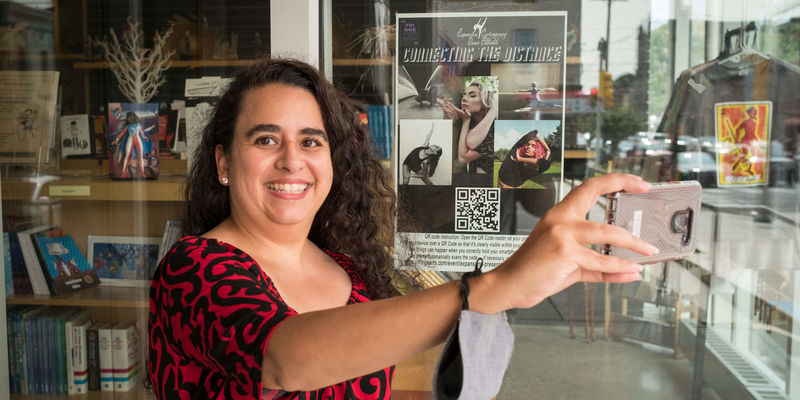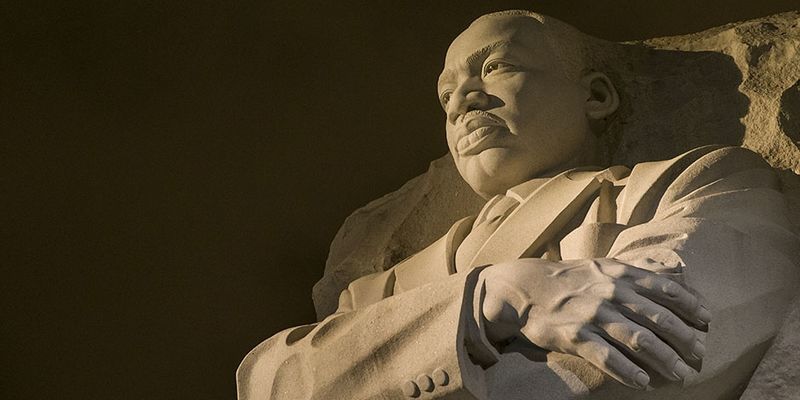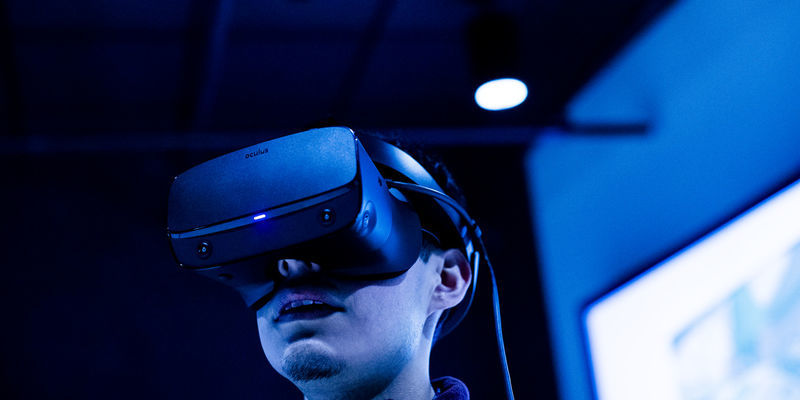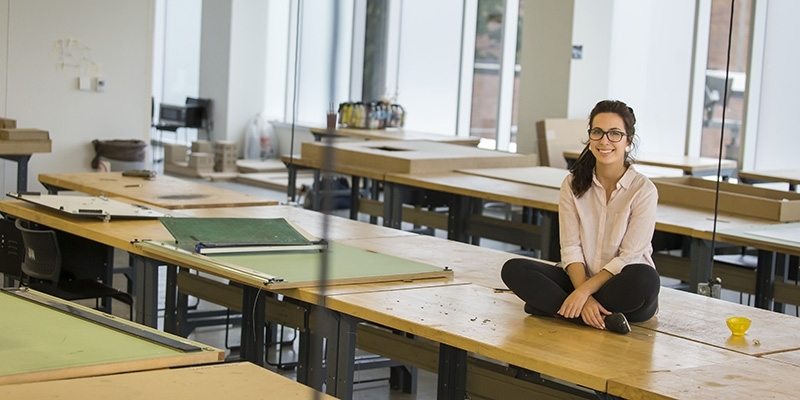Virtual dinner highlights the harsh realities of forced migration
GenEd class creates a virtual space for refugees to share their stories with students.
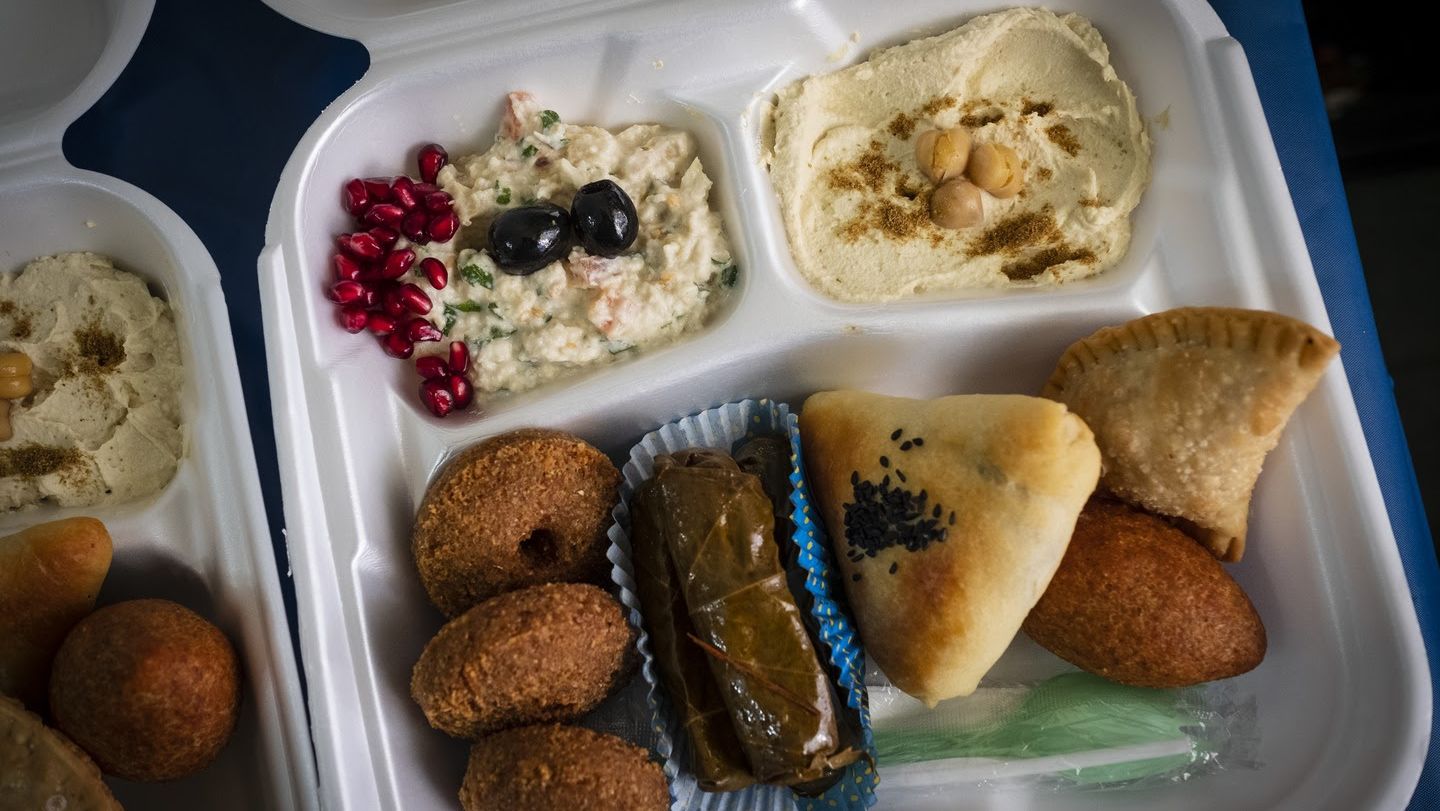
Students in Development and Globalization had a unique opportunity last fall to directly engage with refugees from Iraq and Syria. In November 2020, their instructor, Seyeon Hwang, organized a “A Cultural Dinner with Refugees,” bringing students and refugees together around a virtual table to enjoy a meal. The course fulfills the General Education (GenEd) World Society requirement. Hwang, an adjunct Instructor in Temple’s Department of Geography and Urban Studies, has a background in urban planning and conducts research on citizenship and forced migration.
“As a culture, we hear a lot about refugees especially now with the refugee crisis unfolding all over the world,” said Hwang. “But you rarely, if ever, get to talk to refugees.”
Hwang incorporates oral history into her research methodology and into her classroom whenever possible. Guest speakers allow her students to meet people outside of their network and to see the careers that are possible in international development.
For Hwang, hosting a dinner is an impactful way to bring home the concepts being covered in class. She thinks of her class as civic education on a global level and has an overarching goal for her students to understand development in the face of forced migration.
“Compassion is a very important part of learning,” Hwang said.
When the coronavirus pandemic forced many classes at Temple, including Hwang’s, to be conducted remotely, she didn’t want to give up on the gathering she had planned.
She worked with Bridge, a social enterprise platform based in Lancaster, Pennsylvania, to organize the event. Bridge connects global refugees with local groups to create cross-cultural experiences. It’s founder, Mustafa Nuur, is an advocate and a former refugee from Somalia.
Originally intended to be in person, Hwang wanted to preserve the meal component of the virtual event. She was elated when she found a local catering company run by former refugee Asmaa Diab. Born in Homs, Syria, Diab fled her home country with her husband and three sons and spent three years in Egypt before being resettled in Philadelphia. Her U.S. cooking career first began by making cookies for a friend. She is now the founder and CEO of Philly Syrian Kitchen and offers individualized catering, cooking classes and culinary workshops.
Diab’s company prepared and delivered meals in individual boxes to Main Campus where they were picked up by attendees the day of the dinner.
The dinner was funded by the Department of Geography and Urban Studies and through a grant from Temple’s Philadelphia Experience (PEX) program, part of the university’s GenEd program. PEX encourages students to interact with the city and region through meaningful encounters.
“With the addition of a full course meal, this event allowed students to have a taste of culture from a local Philadelphia restaurant,” said PEX Program Coordinator Donnell Powell. “The connection of the food to the storytelling was a powerful way to experience the journeys of the refugees.”
Joining Diab as a guest at the dinner was Basma Alawee. Born and raised in Baghdad, Iraq, Alawee came to the U.S. as a refugee in 2010. She was unable to continue her engineering career and became a teacher. Currently based in Jacksonville, Florida, Alawee is the state refugee organizer of the Florida Immigrant Coalition.
Also speaking at the dinner was Heval Kelli, a Syrian Kurdish-born physician. He moved to the U.S. as a refugee two weeks after 9/11 where he began work as a dishwasher. His remarkable journey and work have been featured in the media and praised by the U.N. Secretary-General and Presidents Obama and Carter.
Temple Now talked with a few of the students in attendance: MJ DelValle, Class of 2022; Sarah Katz, Class of 2022; Jordyn Pace, Class of 2021; and Taylor Wells, Class of 2022. Here’s how they described the one-of-a-kind-experience.
Temple Now: Describe the experience.
Sarah Katz: It felt like we were all sitting around the table, eating and telling stories. I think some of the best memories are made over a good meal.
Taylor Wells: We learned about the food and what it represented in their cultures. It was more open and engaging than a typical lecture.
MJ DelValle: We had three panelists in the discussion and they talked from their different perspectives of being a refugee and their journey along the way.
TN: What did you learn?
Jordyn Pace: That they didn’t have a choice. I think it’s hard for people to grapple with the fact that refugees are not economic migrants looking for better job opportunities or trying to reunite with their families. They’re fleeing for a reason; they’re being forced out.
SK: Their persistence struck me the most. My mom is an immigrant, so I understand their need to prove themselves to everyone else that they belong and deserve to be here.
MJD: A bit of a shock to truly see that these people had lives just like us. You don’t really think that a refugee used to be a lawyer or an engineer or a doctor. With a lot of courses, you don’t get to see the human aspect of what we’re learning.
TW: I learned most about the shortcomings of our system in how we take in refugees in our country. All of the blocks that they had to get through to get somewhere safe. It doesn’t make sense to me that as a country, and as a larger global network of countries who are taking in refugees. What can we do to make it less difficult and facilitate that process a little bit easier?
TN: What was it like to have like a virtual dinner?
MJD: It was very needed during times like this to have something that’s outside of our routine classes and we got to hear these very amazing and very triumphant stories.
JP: Because of Zoom we saw them in their homes. I think they were more comfortable in their own environment.
TN: How did the dinner broaden your understanding of forced migration and refugeeism?
TW: The thing that stuck out to me the most was how important it is to seek out opportunities to learn more about other people’s experiences.
MJD: It definitely opened my mind and also my heart to people that are going through these experiences and it encourages me to do more as a global citizen.
